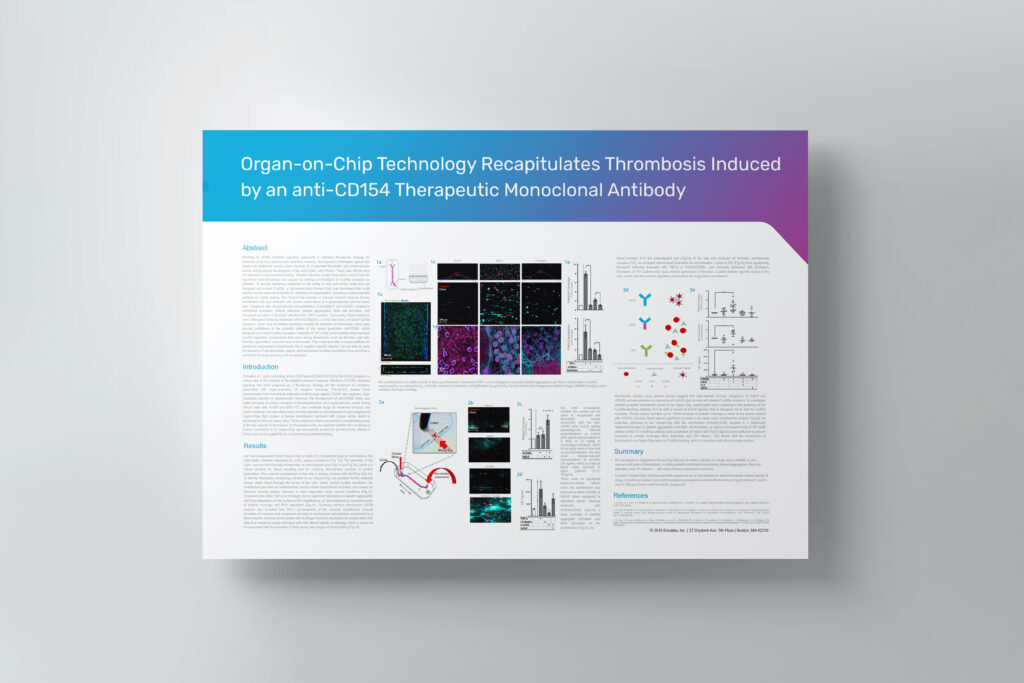Abstract
Blocking of CD40L-mediated signaling represents a validated therapeutic strategy for treatment of several auto-immune disorders, however, development of therapies against this target was stalled for several years because of unexpected thrombotic and cardiovascular events during clinical development of the anti-CD40L mAb Hu5c8. These side effects were not detected during preclinical testing. Platelet activation assays have been used to test the hypothesis that thrombosis was caused by binding of Hu5c8IgG1 to FcγRIIa receptors on platelets. To provide additional confidence in the safety of new anti-CD40L mAbs that are designed not to bind FcγRIIa, a micovessel-chip (Vessel-Chip) was developed that could capture human relevant endpoints for detection of coagulopathy, providing a patient-specific platform for safety testing. The Vessel-Chip includes a vascular channel lined by human endothelial cells and perfused with human whole blood at a physiologically-relevant shear rate. Treatment with clinical-relevant concentrations of hu5c8IgG1 and sCD40L resulted in endothelial activation, platelet adhesion, platelet aggregation, fibrin clot formation, and increased secretion of thrombin anti-thrombin (TAT) complex. Conversely, these endpoints were attenuated following treatment with Hu5c8IgG2σ, a mAb that does not bind FcγRIIa receptors. Given lack of suitable preclinical models for detection of thrombosis, these data provide confidence in the potential safety of the newer generation anti-CD40L mAbs designed not to bind FcγRIIa receptors. Detection of TAT in the model confirms that important counter-regulatory mechanisms that occur during thrombosis, such as thrombin and antithrombin generation, occur de-novo in the model. This model provides a unique platform for preclinical assessment of thrombosis risk in a patient-specific manner, but can also be used for discovery of anti-thrombotic agents, and mechanism of action elucidation thus providing a useful tool for drug discovery and development.
Monoclonal Antibody

